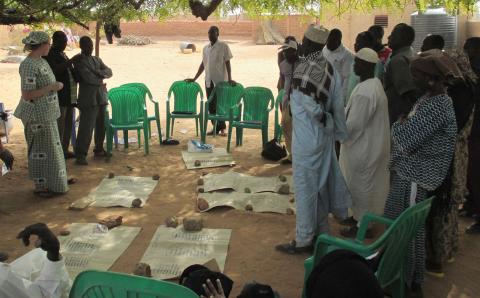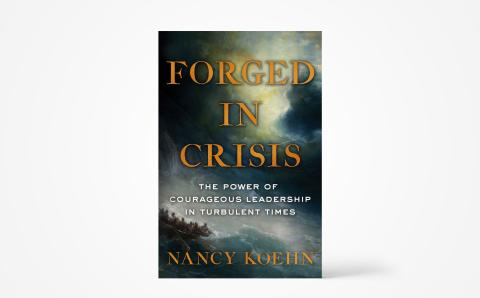#MeToo. At the end of 2017, this hashtag went viral as woman after woman disclosed that she too had experienced sexual harassment or assault. The sheer number of women who shared stories of being shamed, demeaned, and mistreated serves as a powerful reminder of why we still need feminism today.
For many, the term “feminist” may call to mind images of angry, bra-burning, men-hating, abortion-loving women. But a feminist is simply a person who believes in the inherent equality of men and women and is committed to advocating for a world that reflects that equality. Feminism questions why, since men and women share a common humanity, one sex has more privileges, opportunities, influence, resources, freedoms, and protections than the other. Feminists also aim to correct this disparity by securing legal and political rights for women.
While Christian feminists may disagree with particular commitments of some modern feminists, including support for abortion, they share with them a fundamental conviction that men and women are created equal and that this equality should be manifest in homes, churches, and society.
But how do Christian feminists reconcile this position with the teachings of Scripture? Doesn’t the Bible assert that men are the head of the home and that women are to be silent in church? While some Christians certainly read the Bible this way, it is not clear that this is what it intends to teach.
Indeed, Scripture’s first word about woman is that she is created in the image of God. Along with man, woman is commissioned to have dominion over the earth: to rule over, invest in, contribute to, and care for God’s created order (Gen. 1:26-28). No indication is given of hierarchy, nor is a distinction made between male and female roles. As Lee Anna Starr, an early 20th-century commentator, noted, “Women’s God-given sphere is as wide as the earth’s circumference, as high as the firmament, and as deep as the sea” (The Bible Status of Woman, 21). In other words, women would have to step off the earth to transgress the limits of her divinely ordained sphere!
Similarly, Genesis 2 depicts the male-female relationship in ways that accentuate mutuality and companionship. Woman was created, the text tells us, because the man needed her. In the patriarchal culture of the ancient Near East, the idea that the man needed the woman would have been startling. Yet this is precisely what Genesis 2 says. Man was alone, and it was not good, so God created the woman to be man’s partner and friend.
Absent from these chapters is any indication that the woman is created to assume a supportive role to her husband or that women should not be leaders. In fact, only with the entrance of sin into the world does the man assume dominance over the woman. In Genesis 3:8-19 we sense God’s horror and grief as he describes for Adam and Eve the consequences of their sin. Man ruling over woman, it turns out, is not God’s intention but a result of the fall and an indication of what is broken in the male-female relationship.
While some might assume that this state of affairs is the “new normal” for men and women, the Bible teaches that there is more to the story. In steadfast love, God resolved to set the world right again, redeeming and restoring all that was lost in the fall—including the relationship of equality between men and women. Thus, in light of Christ’s death and resurrection, through which all things are made new, Paul can say, “There is neither Greek nor Jew, slave nor free, male nor female, for we are all one in Christ” (Gal. 3:28). And as we await the time when the fullness of God’s redemptive work will be realized in Christ, we are invited even now to lean into this new reality.
But what of that handful of texts (Eph. 5:21-33; Col. 3:18; 1 Cor. 11:2-16; 14:34-36; 1 Tim. 2:8-15; 1 Pet. 3:1-7) that seem to reinforce limitations on women, particularly in marriage and in the church? Don’t they clearly articulate God’s design for humanity? The short answer is: not exactly. In many cases, translation issues and convoluted arguments obscure the plain sense of these texts. Even more problematic, however, is that these texts seem to contradict other parts of Scripture. Paul’s prohibitions against women speaking in worship (1 Cor. 14:34-36), for instance, conflict with his words a couple of chapters earlier where he affirms women prophesying (1 Cor. 11:5-6). Verses that suggest that a woman not teach or assume authority over a man (1 Tim. 2:11-12) stand in tension with Paul’s commendation of the work of Priscilla in teaching and correcting Apollos (Acts 18:26), Junia in her work as an apostle (Rom. 16:7), Nympha and Apphia as leaders of house churches, and Euodia and Syntyche as evangelists or coworkers with Paul (Phil. 4:2-3).
Moreover, Jesus himself seems either unaware of or indifferent to notions of divinely ordained roles for women. Take, for instance, his approval of Mary for choosing to learn theology over attending to domestic duties (Luke 10:38-42) or his commissioning of the women at the tomb to go and proclaim the good news to the male disciples that he is alive (Luke 24:1-12). Throughout the gospels, Jesus shuns the patriarchal expectations of Roman culture and instead treats women in ways that reflect God’s original intentions as laid out in Genesis 1.
Given Jesus’ attitude toward women and Paul’s own commendations of women’s activity in the work of the gospel, it seems doubtful that in 1 Corinthians 11:2-16; 14:34-36; and 1 Timothy 2:8-15, Paul intended to impose a universal prohibition on women’s preaching and leadership. It is more likely that in these texts, Paul is addressing some disruptive behaviors by a specific group of women in the Corinthian church and that his comments are particular to this situation.
Furthermore, a close reading of Paul’s comments about men and women in marriage suggests that while he was not explicitly challenging the patriarchy of the Roman culture, he doesn’t exactly accommodate it either. Instead, Paul redefines submission in marriage as an act of Christian discipleship and mission. He calls both men and women to practice mutual submission as a sign of their identity in Christ (Eph. 5:21-33; Col. 3:18; 1 Pet. 3:1-7). In other words, Paul was calling these early Christians to a radical discipleship that was countercultural in all kinds of ways, not least in male-female relationships.
Christian feminists believe that God still calls his people to a radical, countercultural discipleship in the area of gender relations. We live in a culture that continues to objectify and devalue women while at the same time perpetuating toxic notions of masculinity that leave both sexes alienated from what God intended for them. In this context, Christians are called to champion healthier understandings of what it means to be male and female, recognizing in each other the image of God and relating to each other in mutual love, submission, and respect. Let us, then, as followers of Jesus Christ, reach for a world where both men and women can flourish and where no woman ever has to say “me too” again.
For the CRCNA’s official position on women in ecclesiastical office, visit tinyurl.com/crcna-position.
Questions for Discussion
- What comes to mind when you hear the word feminism? What may have created that image for you?
- After reading this article, do you consider yourself to be a Christian feminist? Why or why not?
- This article explains one of two perspectives that the CRC officially recognizes on the issue of women in church leadership roles. What may be some of the rationale for the perspective of excluding women from church leadership?
- What are some ways you and your church community can champion healthy understandings of what it means to be male and female?
About the Author
Amanda Benckhuysen is the author of The Gospel According to Eve: A History of Women's Interpretation and Immigrants, the Bible, and You. She works as a safe church consultant for Thrive and attends Kelloggsville (Mich.) Christian Reformed Church.








